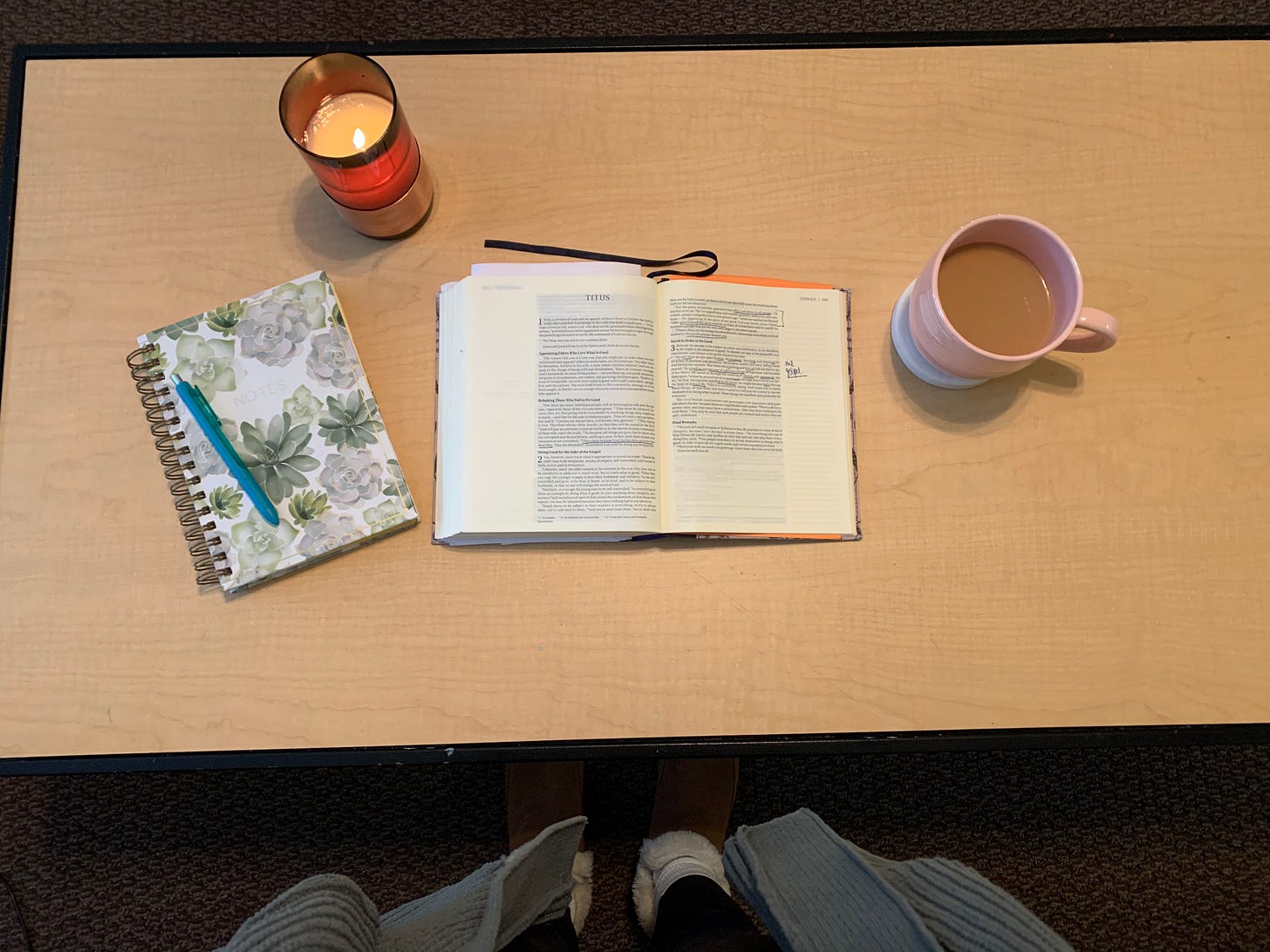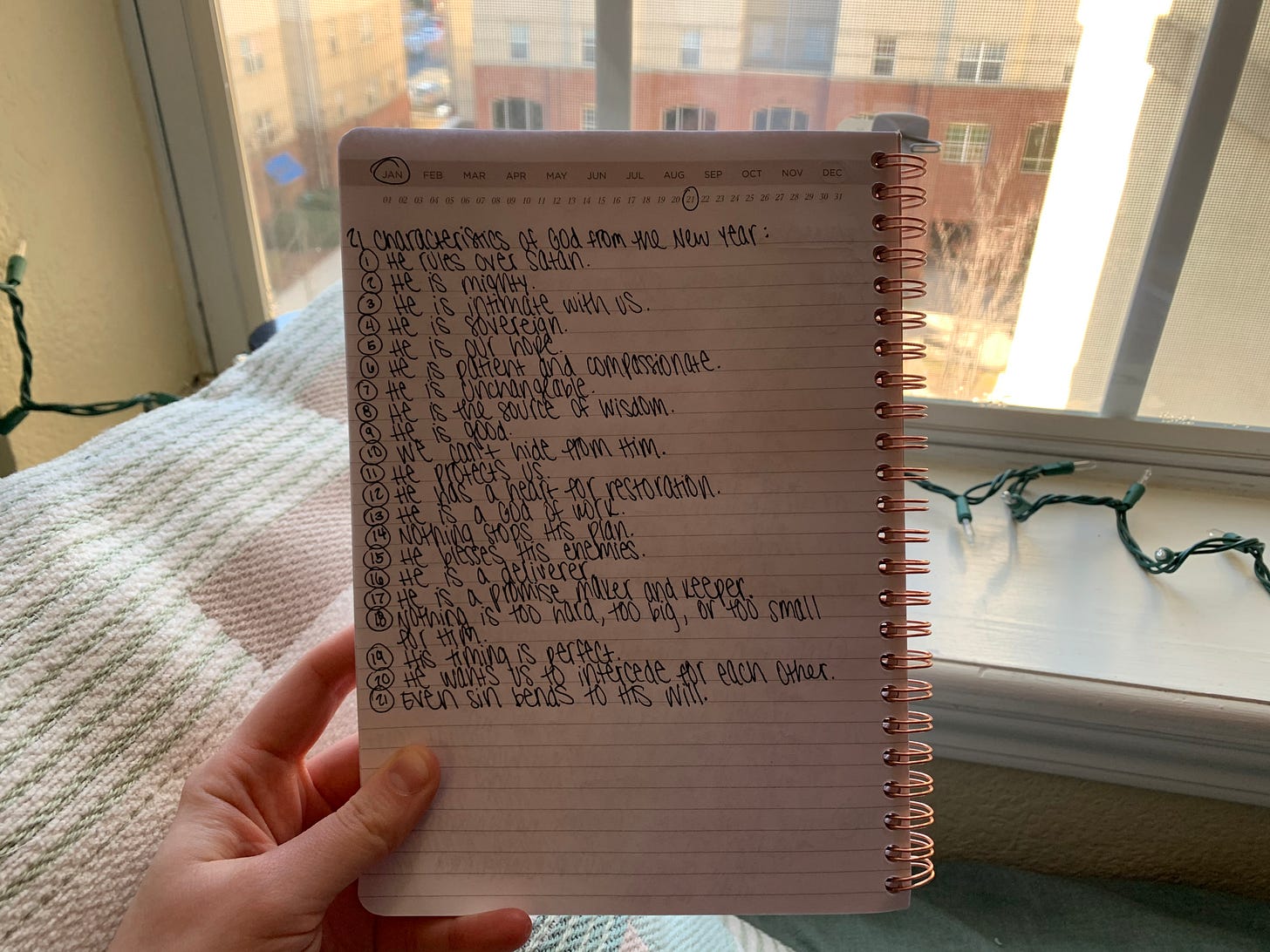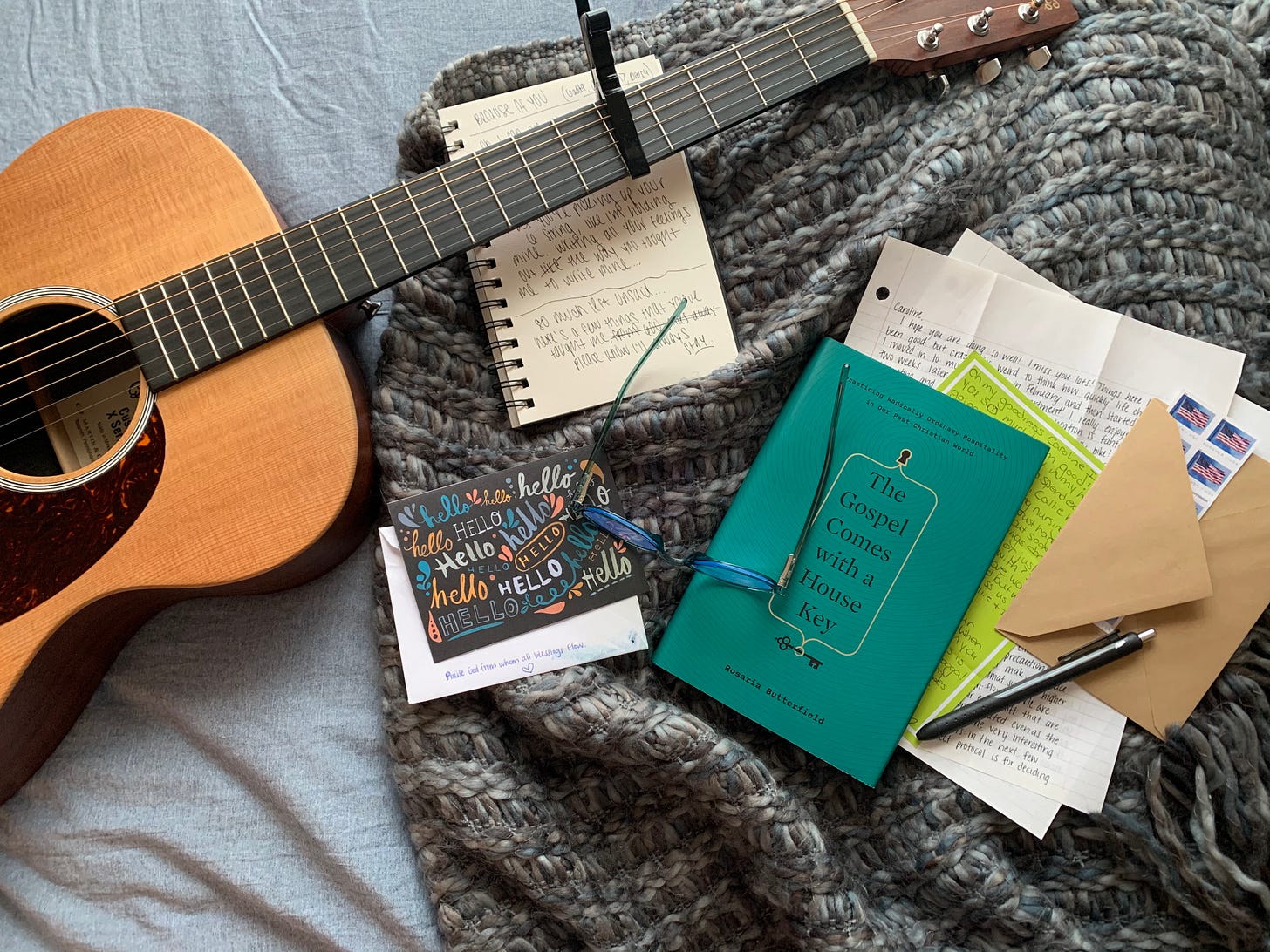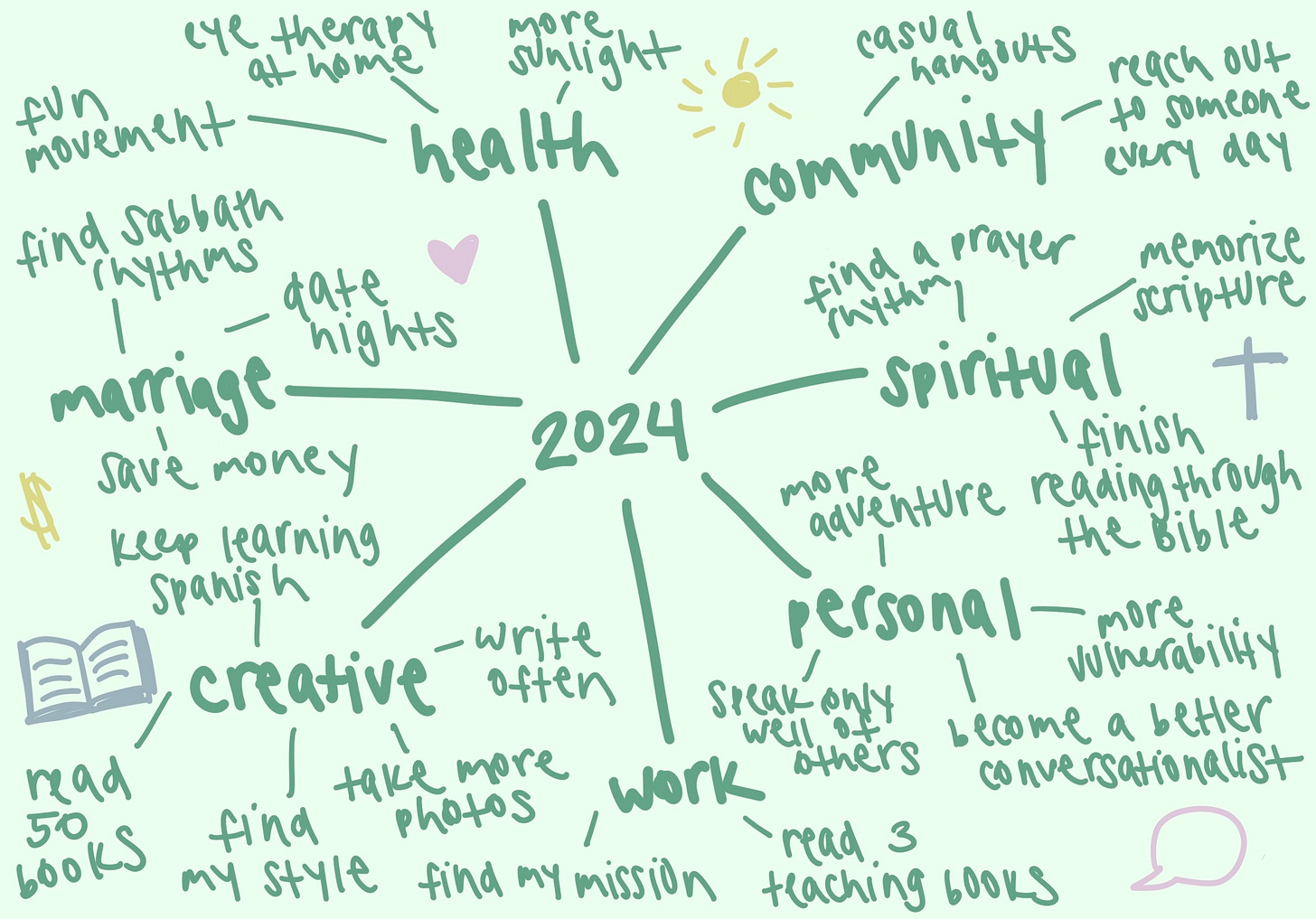Hobby Spotlight #1: Journaling
What type of journaling is best for you?
Why Journaling Matters
I have loved writing since I was young. I would fill pages with songs, stories, scripts, and scribbles - pouring my thoughts onto paper in any way I could. There are journals stacked in the top of my closet, and I’m sure a few are still tucked away in a box at my parents’ house.
Journaling has always been a fluid practice for me. It has come and gone as I’ve needed it, shifting and evolving over time. But no matter how much my life changes, I always find my way back to it.
Especially in the fast-paced world we live in today, I believe journaling holds incredible value. It creates space to slow down, to be present with ourselves - our thoughts, feelings, dreams, fears, hopes, and worries - and to sort through them, even if just a little. It’s a tool for reflection, creativity, and clarity.
Journaling has been a constant in my life - sometimes daily, sometimes only when I need it most. And if you haven’t journaled before, or have struggled to stay consistent, I hope this inspires you to find a style that works for you.
Ways to Journal
Journaling can look so many different ways. Many people assume journaling isn’t for them, but with so many different styles, there's something for everyone! Let’s break down some of my favorite journaling forms.
1. Journaling Prompts
If you like a little structure but still want room to reflect deeply, prompts might be the best place to start. This might be the first thing you think of when you think of journaling. Maybe having a topic and guiding question for your writing feels like the perfect amount of direction, or maybe it makes you feel like you are back in high school doing an English assignment. Either way, I invite you to try it out and see!
Here are some journaling prompts to get you started:
When you are at the end of your life, what will you be glad you did? What will you wish you had spent less time doing?
What does success look like to you?
What does your ideal day look like from start to finish?
Whose life do you admire? What is it about their life that you admire?
Are you taking enough risks in your life? Would you like to change your relationship to risk? If so, how?
How much does your life reflect your dreams and desires vs someone else’s?
What is a made-up rule about your life that you are applying to yourself? How has this held you back and how might you change it?
What was a seemingly inconsequential decision that made a big impact in your life?
And a couple of longer exercises…
Think about life in 5 year increments, and repeat as many times as you like.
What would my life look like over the next 5 years I follow the same path I’m on now?
What would my life look like over the next 5 years if I couldn’t do what I’m doing now and had to choose the next thing that I would do instead?
What would my life look like over the next 5 years if money wasn’t an issue and I could do whatever I wanted?
If I repeated every action I took today, every day for a year, where would I end up? Is this the place I want to be?
As someone who has struggled with fear and anxiety, this Fear Setting Exercise by Tim Ferriss is really helpful. My brain is great at making a list of all the things that could go wrong, and this exercise does a great way of holding space for those fears while also placing them in the light of reality.
What is the worst thing that will happen if I… [the thing that you fear doing]?
Here, you want to let your worries run wild and make a list of all the things that you think could go wrong.
What can I do to prevent each of the worst things from happening?
If the worst case scenario happened, what can I do to repair it?
What are the benefits of an attempt or partial success?
If I don’t do the thing that scares me, what will my life look like in 6 months, 1 year, and 3 years?
2. Lists
If writing full paragraphs feels overwhelming, lists are a simple yet powerful way to journal. I think they also might be my favorite way. You don’t have to worry about sentences and punctuation, and it’s a great way to clear your brain.
Here are some ideas:
Things you are grateful for
Dreams for this month, this year, the next 5 years, etc.
Small things that bring you joy
Books you want to read
Lessons you’ve learned
Projects you want to tackle
Fears you want to overcome
Places you want to go
Hobbies to try
Habits you want to build
Your top priorities in this season
Ways to take better care of yourself
Things that help you calm down and reset
3. Brain Dumps
Sometimes, your mind just feels cluttered, and you need a space to release everything without rules or structure. That’s where brain dumps come in. You simply open your journal and write down everything on your mind - whether it’s tasks, worries, ideas, or reflections. There’s no right or wrong way to do it. The goal is just to get it out of your head and onto the page.
4. Prayers
For me, journaling my prayers is a way that I connect to God. I love writing down my prayers because it helps me stay focused, allows me to look back on them in the future, and deepens my connection with God. Some days they’re short and simple; other days, they are pages long and incredibly raw and honest.
5. Morning Intentions / Evening Reflections
If you want a daily journaling habit but don’t know where to start, this is a great option. The premise is simple: journal something every morning and/or night. This could be a quick gratitude list, your top priorities, a reflection on the day, or even a simple sentence about how you’re feeling.
6. Letters
Writing letters - whether to your past self, future self, or someone else - can be an incredibly powerful form of journaling. When I was in high school, my Spanish teacher had us write letters to our future selves, and receiving that letter five years later was such a fun experience. Writing letters to others can be just as powerful. Whether it’s a letter of gratitude or anger, it can be a great way to process emotions in a safe space.
7. Brain Maps
If you’re a visual thinker, brain mapping is a great way to structure your thoughts. I often use these for planning out goals. They often take the shape of a word web - maybe I put “2025” in the middle, then branch out into different areas of life like health, relationships, and career, adding specific actions or habits under each one. There are no rules; just put your thoughts down in a way that makes sense to you.
8. Themed Reflections
Taking time to reflect on different areas of your life can bring so much clarity. Instead of journaling about random things each day, you might dedicate a night to reflecting on a specific theme. Think about what this area of your life has looked like in the past, where it is now, and what you want it to look like moving forward.
Here are some ideas of topics to explore:
Health
Relationships
Work / Career
Creativity / Play
Spirituality / Faith
Finances
Home / Environment
Joy / Fun
Learning / Knowledge
Rest
Dreams / Future Goals
Bonus: Bullet Journaling
If you love creativity, organization, and a hands-on approach, bullet journaling might be for you. I haven’t tackled this one yet, but I feel like I would love it - it seems like such a great way to slow down, be creative, and work unplugged. However, it also requires some space, supplies, and a little more patience than other journaling styles. I am excited to give this a try - stay tuned!
Challenge: Try out a journaling style this week!
Reply to this email and let me know what you decide to try and how it goes! If there is another type of journaling that you love, let me know what it is!
Thanks for reading! If you enjoyed this newsletter, it would mean so much to me if you would share it with a friend!
Take care,
Caroline





